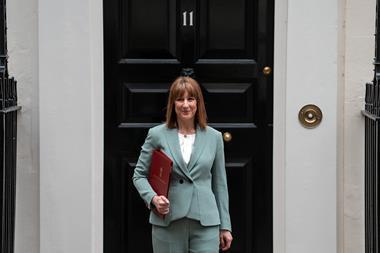Straitened times call for difficult choices. In that context, the UK government’s proposed funding for R&D, laid out in its spending plans in mid-June, was about as good as it was going to get. Budgets will rise over the next five years, reaching a record £22.6 billion in 2029–30, but those rises are likely to be eaten up by inflation and essentially what we’re seeing is a flat cash settlement.

There was one significant lacuna though: universities received barely a mention. The chancellor Rachel Reeves had warm words for the country’s universities in her spending review address to the House of Commons, describing them as ‘world-leading’, and stating that the country is ‘proud of them’. But that was it. Nothing about addressing the financial black hole many institutions find themselves in. This is a huge worry for the sector as it battles a perfect storm of Covid, rising energy costs, inflation, falling international student numbers and stagnant tuition fee levels.
This leaves the institutions where much of the country’s R&D takes place still waiting and hoping for some good news in future government announcements. These include the industrial strategy that is set to recognise universities as central to R&D activity, and which is imminent as Chemistry World goes to press. A review of post-16 education is expected shortly too, and new decisions on tuition fees should be coming further down the line. However, there’s unlikely to be any cash injection for universities in the short term to relieve the pressure many are currently under. This could mean more cuts to programmes at institutions and further job losses.
We have already seen how cost-cutting at universities has affected chemistry, with course closures and several chemistry departments shutting. In the next issue, we’ll be highlighting how some of those closures are already making it harder for students across the UK to study chemistry, particularly those living outside of its populous urban areas.
You can be sure that university leaders and groups are already lobbying the government hard on behalf of higher education. The government now needs to listen. Research has frequently shown that money used to fund universities is returned to the economy with interest – one report found it returns this investment 14-fold. If the government is pinning its hopes for economic growth on innovation then it must back universities to help deliver this.

















No comments yet